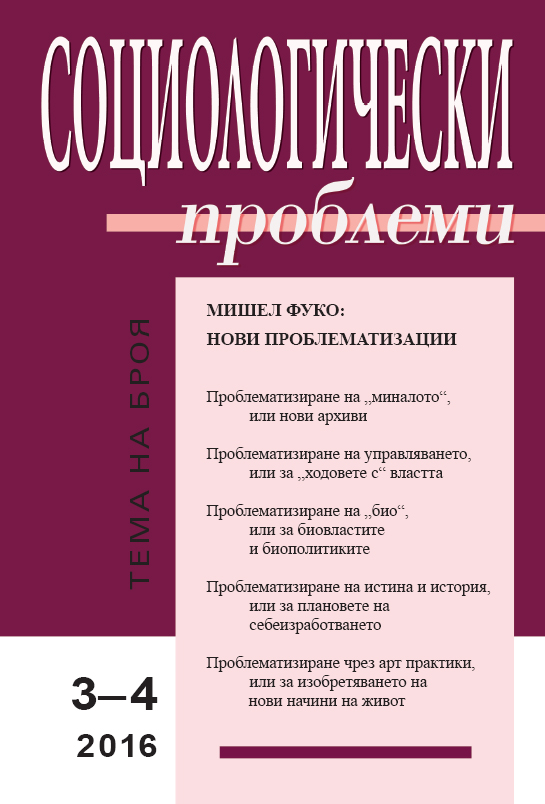Фуко за употребите на лъжата
Foucault and the Uses of Lying
Author(s): Stiliyan YotovSubject(s): Politics / Political Sciences, Philosophy, Social Sciences, Philosophical Traditions, Political Philosophy, Social Philosophy, Sociology
Published by: Институт по философия и социология при БАН
Keywords: transgression & authenticity; genealogy; knowledge (connaisance) & illusion; error; lie; pouvoir-savoir; regimes of truth; stratagems of truth; truthfulness (Wahrhaftigkeit); governmentality; conduct
Summary/Abstract: The interest in the genealogy and in the history of power shared by Foucault and Nietzsche raises the question about the status and the meaning of lying in Foucault’s work. This article is an effort to reconstruct his attitude to this topic, which appears in many places of the discussion but everywhere overshadowed by other problems, especially by those of the truth. It’s the turn in Foucault’s understanding of the truth what motivates me to split the text in two parts. In the first I trace out the stage of his studies devoted to the transgression by which the Self could achieve certainty in itself. But the main accent stresses the discovering of Nietzsche, made by Foucault, against the background of his own conception of knowledge management. No doubt that the following syntheses between power and knowledge leads to temptations to recognize the uses of lying as a justified tool, what Foucault finds out by himself in some praxis of psychotherapy, but also denounces as delusive and counterproductive. The second part deals with the changes in Foucault’s genealogy, occurring with the reevaluation of the governmentality as a different kind of power exercises and uses of truth. Here I reconstruct the appearance of a series of new concepts, constructed and experimentally implemented by Foucault, which helps to discover the main moments of the so called “subjectification” as a peculiar reshaping of the borders between true and untrue. The culmination of this part is devoted to the practices, in which the authenticity presupposes (increasingly) personal disclosure and fearlessness and, on this ground, the use of half-lies and half-truths seems permissible because in the end it doesn’t mix truth with lie.
Journal: Социологически проблеми
- Issue Year: 48/2016
- Issue No: 3-4
- Page Range: 234-262
- Page Count: 29
- Language: Bulgarian
- Content File-PDF

